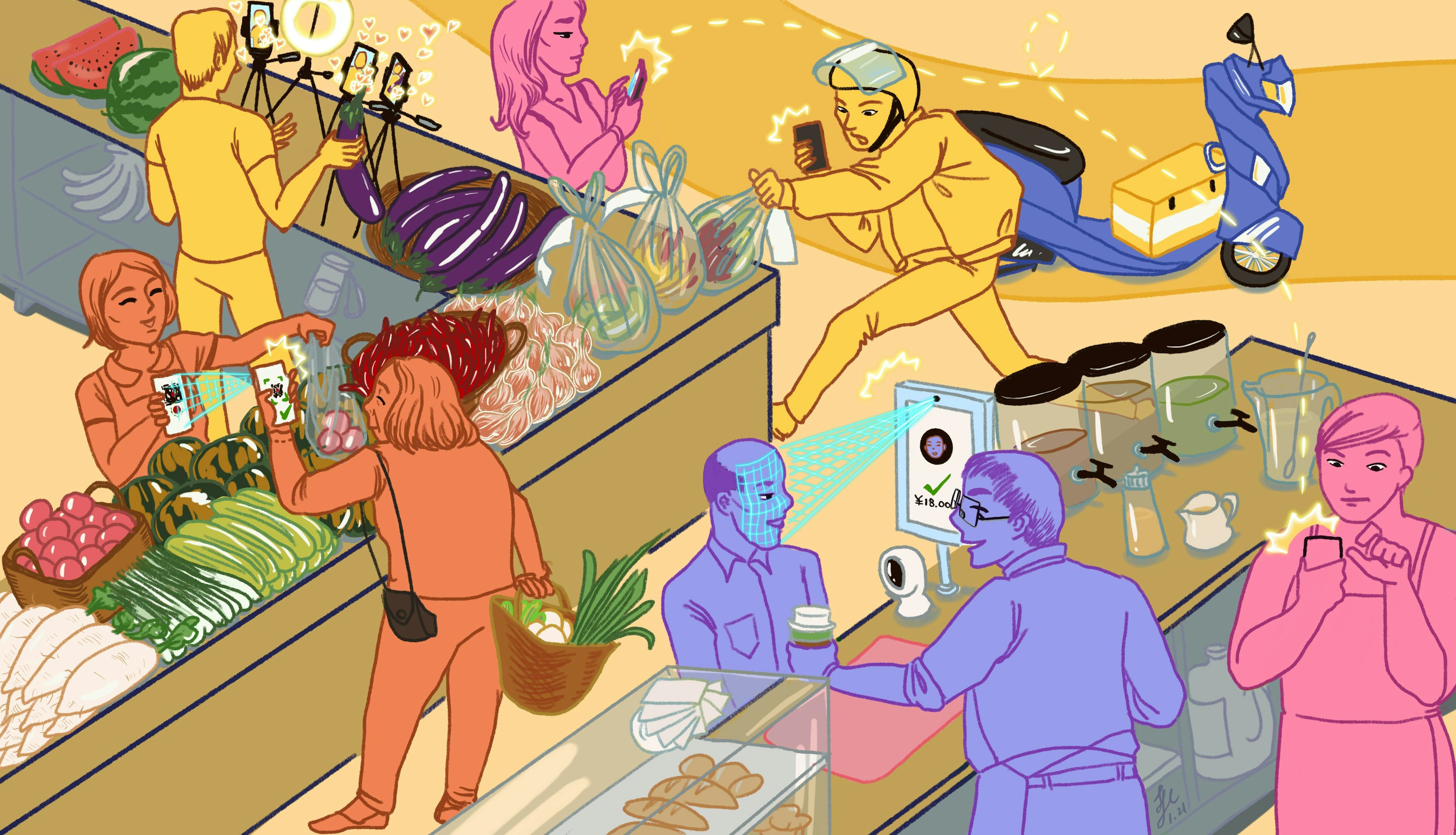How universal basic income could fuse public goods to virtual economy interests

The Covid-19 crisis has accelerated calls for large-scale social change.
Whilst some first hailed the pandemic as an equalising force, the experience has been radically unequal. Lockdowns highlighted vast inequalities in people’s ability to remain resilient in the face of sudden adversities.
The middle classes in developed economies have found an upside to stay-at-home orders, with remote working and (often) increased savings. But the poorest largely either suffered lost income or had no choice but to commute to work. Recent research showed that shift workers, for instance, have been almost twice as likely to catch Covid-19 than the wider population.
The closure of many workplaces, and suspension of salary payments, widened the long-term gap between those with assets, or an ability to take on debt, and those who live from paycheque to paycheque.
Gender equality suffered too, with a report from the European Commission observing that women are overrepresented in sectors hit hardest by the pandemic (women compose 76 percent of Europe’s healthcare and social workers). Women also found themselves doing the unpaid work of caring for children and performing more household duties when lockdowns affected public services.
Among the most prominent sources of inequality highlighted by the pandemic has been the ownership, adoption and use of digital technologies—from enjoying sufficient connection speeds to being able to participate in live video classes, to actually having the necessary hardware. In the UK, the government distributed around one million laptops to pupils and students whose families did not have access to one.
So it should come as no surprise that there has been a growing desire to use economic recovery to review the way we structure work, life and wealth.
Many governments used direct cash payments, furloughed workers, or provided emergency loans at a scale not experienced before. This is significant; as a result, the Covid-19 pandemic normalised unconditional welfare transfers—even in societies traditionally resistant to public “giveaways.”
According to one poll, as many as 65 percent of Americans would now support an unconditional $2000 monthly cash transfer to all US citizens for the duration of the pandemic. In a country where the majority of voters traditionally support low taxation and limited welfare provisions, this represents a seismic shift in attitudes.
Is UBI going mainstream?
In this context, one of the most compelling initiatives has been the call for a universal basic income (UBI). In simple terms, it refers to a type of regular government stipend given to all residents in a given territory, regardless of income or wealth, that covers an individual’s basic needs.
For decades, UBI was marginalised and labelled leftist utopianism. But the growing debate about the future of work has garnered wider support for the programme. Mark Zuckerberg and Elon Musk joined the ranks of UBI enthusiasts, seeing it as a solution to future job loss due to automation. The policy was also adopted by the Democratic Party in California.
To understand the progress UBI made during the pandemic, I spoke to Simon Duffy, founder and director of the Centre for Welfare Reform in the UK, and co-founder of the Sheffield UBI Lab. Our conversation made it clear that the debate around UBI is entering the mainstream. The UBI Lab network—a grassroots initiative aimed at building awareness and support for UBI adoption, co-founded by Duffy in Sheffield—grew from 4 to 40 labs in 2020 alone, and is now global.
Key to this growth are the many UBI experiments that started gaining global traction in the last 5 years. The Spanish UBI policy, announced in March 2020, may be the most high-profile attempt to implement a UBI programme in response to the pandemic.
The scheme fell short of being universal or unconditional. The stipend was means-tested based on household income, limiting the number of eligible recipients to 2,3 million. The value of the transfer, about €1.015 per month, was unlikely to cover a household’s basic needs.
Other high-profile UBI experiments hew closer to the original concept. In Finland, 2000 unemployed people were given an unconditional income of €560 per month for two years between 2017 and 2018. The results reflected a negligible impact on employment, but significant improvement in well-being against a control group that did not receive the grant.
A Kenyan experiment with UBI also showed little impact on employment, but resulted in increased food security and well-being in the recipient group, and also translated to an increased propensity of UBI recipients to start businesses.
This is incidentally a key reason why UBI, in Kenya’s case, offered poor economic protection during the Covid crisis. Since the programme encouraged risk, UBI recipients were slightly more affected by lockdowns.
Frustratingly, there is a limit to what UBI experiments can convey. None provide income that is truly guaranteed in perpetuity. As a result, recipients are more likely to treat such cash transfers like a lottery win. Thus Duffy argues that “the only true test of UBI will be when it is made a permanent part of a society’s welfare state and when it is set at a reasonable level. A leap of faith will be necessary at some point.”
He points out that this would not be the first time we made such a leap: The introduction of pensions by Bismarck, or the creation of the NHS, were similarly radical moments.
Much could be gained from this leap of faith. Duffy passionately advocates for UBI as a “balanced response to human needs” that provides basic security for all, combined with freedom to attempt new projects, experiments or businesses.
Perhaps as importantly, a basic income would, according to Duffy, allow us to ask difficult questions about what constitutes work and which activities are truly valuable, including experimenting with new forms of work—such as community building.

UBI and digital assets
UBI is not without critics and opponents. Among the oldest arguments against the policy is the so-called “surfer problem.” John Rawls famously argued that a guaranteed universal income would be unfair, as some would inevitably choose to spend time in a selfish and counterproductive way—for instance, by becoming surfers at taxpayers’ expense.
Another version of the surfer problem may be emerging. Since one objective of UBI is freedom to take more risk, what if some recipients choose to invest in digital assets, like cryptocurrencies or NFTs? Wouldn’t it lead to UBI-propelled volatility in digital asset prices?
This scenario is not just hypothetical. When the US government prepared to issue a third stimulus check of $1400 per individual directly to US citizens, as many as 40 percent of people surveyed by Mizuho Securities expressed plans to use it to buy Bitcoin. Some predicted that as much as 10 percent of the entire stimulus package could end up invested in the cryptocurrency.
This follows earlier rumours that the April stimulus package of $1200 was already used this way by many retail investors, with Coindesk reporting a sudden spike of Bitcoin purchases to the exact amount as the government payout. Anyone who used the initial $1200 check in April 2020 to buy Bitcoin would have had over $10.000 a year later—as Twitter accounts, such as Bitcoin Stimulus, are quick to remind us.
Why is this a problem for UBI? The purpose of the scheme is to allow individuals to pursue intrinsically valuable productive activities by removing financial pressure on employment income—not to fuel market speculation and rentierism.
And since ownership of digital assets is more unevenly distributed than “real” ones, further development of virtual economies will become increasingly relevant to how we consider inequality and welfare.
With the rise of digital assets, including cryptocurrencies and non-fungible tokens (NFTs), the question of who owns them is increasingly important. Widespread adoption of Bitcoin, for instance, would exacerbate the difference between “haves” and “have-nots.”
Interestingly, a recent Gemini report showed that cryptocurrency investors are less likely to own their home, suggesting that at least some crypto hype is driven by those who want to become asset owners, but are priced out of traditional investments in the physical world.
Millennials were once accused of choosing avocados over house deposits and pensions. But we may see a new such group emerging among those buying Bitcoin and crypto kitties, in response to their long-term exclusion from physical asset ownership. If virtual worlds become primary “third spaces” for leisure and work, then the rapid appreciation of digital assets may create new spheres of exclusion that a fiat-based UBI scheme would have difficulty addressing.
This is significant because, while economic crises enable large and rapid shifts in economic and social structures, they can go either way. Consider the normalisation of the so-called “sharing” or “gig” economy: The doom and gloom of the Great Recession caused many to hope the crisis, combined with the rise of digitisation, would spark disintermediation of traditional players, yielding the sharing economy's rise.
Indeed, 2008-10 saw the creation of many peer-to-peer platforms. The belief was that this new array of companies would create more equitable incentives for labour and production, and contribute to sustainability.
Things didn't turn out this way. Instead, we witnessed rapid privatisation of the sharing economy by enterprises like Uber and Airbnb, and a rise in the number of people performing precarious jobs—so-called gig workers.
Similarly, we should observe today’s newfound love for cash grants with scepticism. The scale of borrowing necessitated by the pandemic has shifted power from creditors to debtors, as extraordinary measures are taken to protect large swathes of economic and social life from collapsing, aiding the case for a form of UBI.
This may be temporary. The crisis also revealed the weakness of labour and small businesses: The last 12 months increased the power of employers and large technology firms like Amazon. If the rise in power of large companies and technology firms is followed by the pendulum of history swinging back to the side of creditors, we are in for a rough ride.
It is perhaps more important, then, to experiment with UBI initiatives now, since, as Duffy argues, they may have beneficial implications on working conditions. He explains, “UBI creates a strong foundation for people to sell their time at a fair rate and it makes it easier for people to organise collectively without the fear of being blacklisted.”
There is a risk that adoption of a UBI policy in many developed economies could accelerate the rise in technology differences in terms of access, and virtual asset ownership. But Duffy refuses to give in to what he calls a “technological dystopia.” Instead, he urges people to think of UBI not just as a policy but as a tool of political action.
In the same way public healthcare in many European countries became a common good that cut across party lines, a universal income could potentially become a good that citizens can organise around—which will ultimately iterate the model.
Perhaps in the future, the virtual economy could be part of the solution. With some cryptocurrencies sharing properties of both income and assets, it could make sense for a portion of a future UBI scheme to be paid in cryptocurrency, since this would cultivate a brave new world in which everyone has a stake.
This opens a possibility of coordinating in order to fund projects and goods of public value. Indeed, Vitalik Buterin, one of the co-creators of Ethereum, recently published a manifesto calling for just such a model.
The nature of the digital universe is such that, unlike in the physical world, resources are theoretically unlimited. While NFTs challenge this by suggesting that “unlimited” does not mean “equally valuable,” precisely which virtual goods are ultimately valuable is a matter of social coordination between users.
09 Sep 2021
-
Michal Rozynek
Illustrations by Macha Pulcini.
DATA-DRIVEN TECH & SOCIAL TRENDS. DELIVERED TO YOUR INBOX WEEKLY.
02/03
Related Insights
03/03
L’Atelier is a data intelligence company based in Paris.
We use advanced machine learning and generative AI to identify emerging technologies and analyse their impact on countries, companies, and capital.


